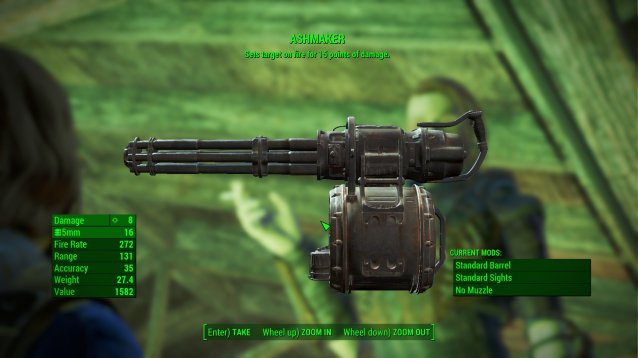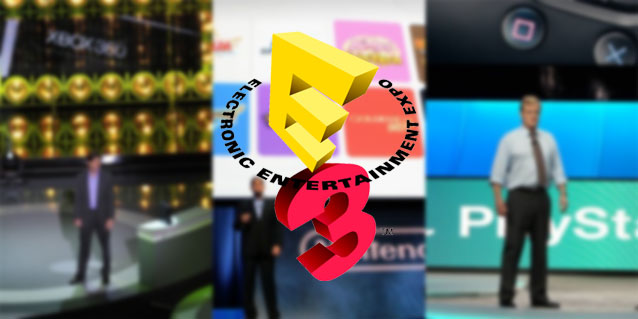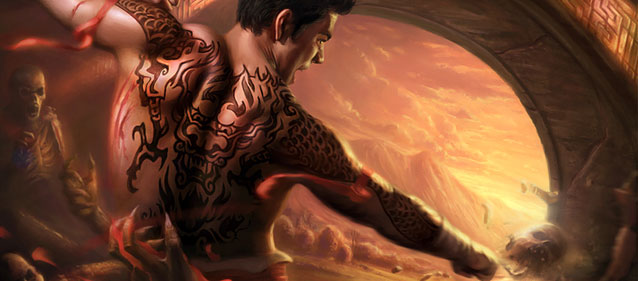

The Portal series is unparalleled in its inventiveness. I never thought that Portal 2 could match, let alone exceed, the ridiculously high bar that Valve set for themselves with Portal. I was wrong. I don't claim to be a smart man. So, Valve, if you were wondering where I think you should take your next entry in the series, here's a look at my top 5 most wanted features for Portal 3.
“Science isn't about 'why?' It's about 'why not!' Why is so much of our science dangerous? Why not marry safe science if you love it so much! In fact, why not invent a special safety door that won't hit you in the butt on the way out, because you are fired!”
Cave's aptitude for unethical experimentation is only matched by his glib “with me or against me” worldview, and it perfectly explains how a place like Aperture could ever exist. Not to mention—the guy brings the funny.
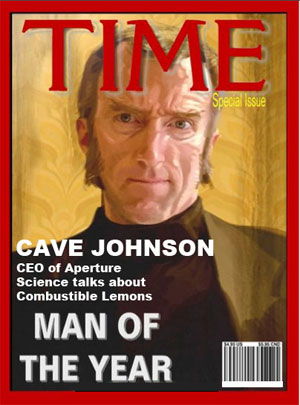
It's safe to say that Mr. Johnson completely stole the show in Portal 2. That Valve was able to create this personality which explains so much about why things are the way they are at Aperture Science is nothing short of genius. Valve was putting on a clinic with Cave Johnson. Eric Wolpaw's writing coupled with J.K. Simmons' delivery give the impression of a man who is constantly on the brink of exploding because he can only contain his misanthropic outrage on a minute to minute basis. Every line of dialogue from Cave Johnson is unquestionably hilarious.
It just makes sense that Aperture's CEO would be practically bursting with piss and vinegar. What other kind of person would be able to run an institution that has been scrubbed like an old petri dish of any trace of ethics? Listening to Cave bluster on about life giving him lemons is not only great—it gives so much insight into who Cave Johnson is, which in turn explains what Aperture Science is. The "Lab Boys" say he can't do something, so he goes and does it ten times bigger than they could have imagined. That's Aperture in a nutshell—everything is taken to a ridiculous, unscrupulous extreme.
In that sense, it's clear that Aperture Science is Cave Johnson sticking it to everyone who said he couldn't (or shouldn't) do something. Just like Michael Jordan played his best basketball to prove all the doubters and naysayers wrong, Cave Johnson does his best science.
Like Jordan, you can't keep this guy in retirement. Cave Johnson must return.
No one does an ARG like Valve. Potato Fools' Day was great fun. Creating the Potato Sack Pack of indie games to kickstart the ARG was an excellent idea. Not only did it help indie developers out, it exposed a lot of people to some great games that they wouldn't have played otherwise. That's a net positive as far as I'm concerned.
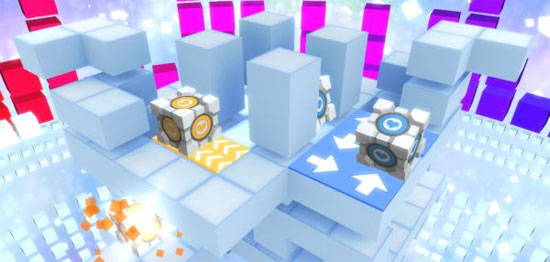
Yeah, things didn't end quite as many people expected. People were expecting the big payoff of the ARG to be an early release of Portal 2—which did happen, but it was only a few hours earlier than originally scheduled. It would have been nice to have the game out a day or two earlier—especially after all the scouring, searching, and desperate attempts at trying to crack the various puzzles presented in and out of the Potato Sack Pack of indie games.
That's not to say it was all bad—I want to do it again, after all. Hanging out in IRC chatrooms for hours, while scouring the ValveARG wiki for any overlooked details or clues was a lot of fun. Valve really gets creative with the way they run their ARGs. It's never one technique that solves everything, nor is there one source for every clue. There is a lot of creative thinking involved with putting it all together. And some of the stuff is solved through really obscure methods, like finding embedded images inside of sound files, or realizing that the code you've been looking at is a telnet address that leads to a remote network that gives you a file to download.
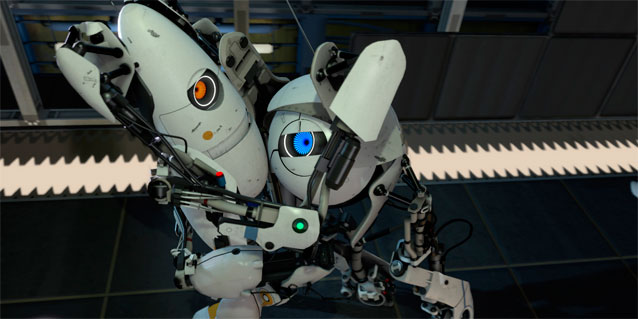
As far as I'm concerned, the Portal series is the gold-standard in how to keep a game fresh. Portal worked because it didn't try to drag things out by meeting a predetermined length to ensure that people felt they had a good value for their money. New gameplay elements and dialogue were introduced into the game in a very tight, metered pace.
Valve didn't introduce ancillary characters into the game because they needed to have X lines of dialogue to justify the price of the game. They also didn't add in new elements because there needed to be Y number of levels to fill out a 25-hour game, because market research shows that's what gamers want.
They made their game, they kept it tight, and as a result, Portal and Portal 2 never became stale. The game was always fresh, always interesting—everything in the game had some kind of purpose. I'm assuming Portal 3 will be more of the same, because why ruin a good thing? Valve knows there shouldn't be leveling grinds, or side quests, or any other buzzwords that developers are currently throwing around when they should just be saying "fluff."
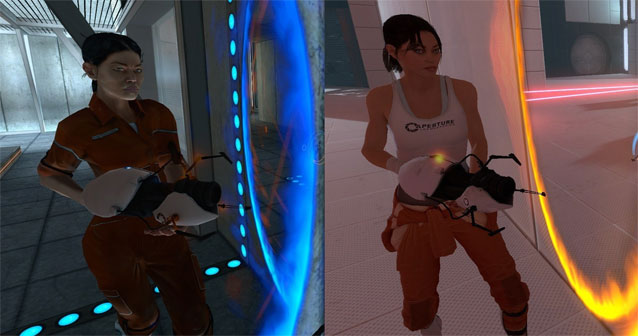
I can't be the only one who felt teased during the Portal 2's intro. I would love to know what happened to the world (and Aperture Science) in the time between Chell's stasis at the end of Portal, and when she's woken up by Wheatley at the start of Portal 2. That few minutes of gameplay hints at so much story, that I can't help but wonder what actually went on.
Clearly, Portal 3 is going to pick up where Portal 2's co-op left off. Chell's story is pretty much done at the end of Portal 2. And GlaDOS is clearly ready to start some mega-science after Atlas and P-Body's discovery at the end of the campaign. But, I would love some exploration into what went on between the first two games. I don't expect it to be the main focus of the game, but visiting that time period may help flesh out some of the background info on Aperture (or the rest of the world, even).
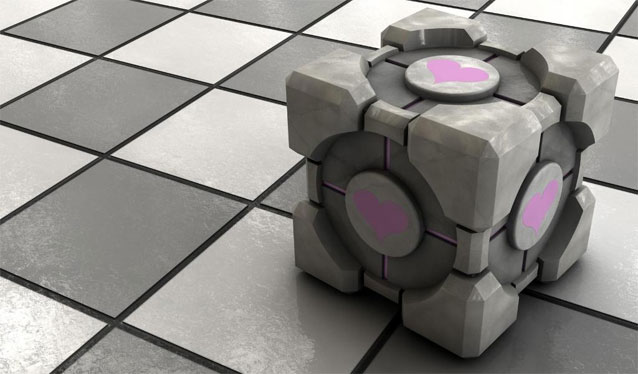
I feel like I almost don't have to mention this one. Portal is a series that is, at any moment, is exponentially expanding itself in terms of gameplay elements. New dimensions are added into each successive puzzle, which help to keep the entire experience fresh (also, there's some pretty decent writing).
I'm confident that Valve won't take the easy way out by adding one or two new gimmicks into the formula just so they can get away with asking for $50 or $60 again. They've managed to create a series that is at all times engaging, ambitious, and downright fun to play. I don't think they're gonna screw it up this far into it.
So, Valve, impress us once again by adding in some crazy, practically unheard of gameplay element, and let us know that you can do basically anything short of bending space time (though, I'm sure the Lab Boys are working on that one).
